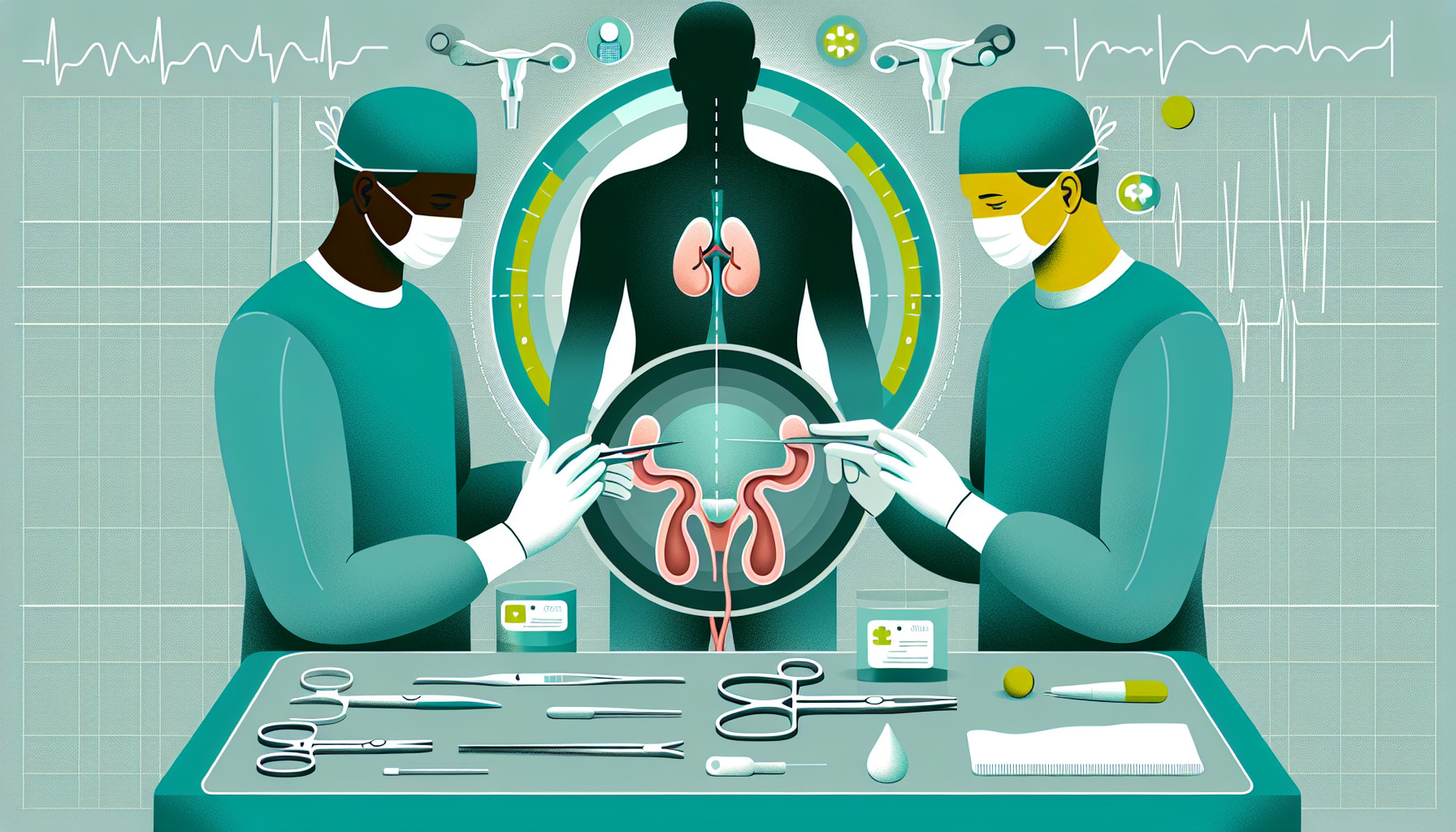Our Summary
This research paper is a thorough review of previously conducted studies comparing two types of surgery for bladder cancer: robot-assisted surgery and traditional open surgery. The researchers wanted to see if one type of surgery led to better patient outcomes, such as slower disease progression, fewer major complications, and better quality of life.
They found five studies that fit their criteria and combined the results. In total, these studies included 540 patients.
Their findings suggest that both types of surgery are pretty similar in terms of how well they control the disease, the risk of major complications, and the impact on patients’ quality of life. However, the robot-assisted surgery did have a couple of advantages. It was associated with a lower risk of needing a blood transfusion during or after surgery and slightly shorter hospital stays. However, the robot-assisted surgery took longer to perform.
There was no significant difference in the rate of the cancer coming back in the same area between the two types of surgery. However, this could still potentially be important from a clinical perspective and the traditional open surgery had a slight advantage in this respect.
The researchers therefore concluded that the type of surgical approach doesn’t make a huge difference to patient outcomes for this type of bladder cancer surgery. The main benefits of robot-assisted surgery are a lower risk of needing a blood transfusion and potentially getting out of the hospital a bit sooner.
FAQs
- What were the main findings of the research comparing robot-assisted surgery and traditional open surgery for bladder cancer?
- Does the type of surgical approach significantly affect patient outcomes in bladder cancer surgery?
- What are the advantages of robot-assisted surgery for bladder cancer compared to traditional open surgery?
Doctor’s Tip
One helpful tip a doctor might give a patient about cystectomy is to discuss with their healthcare team the potential benefits and risks of robot-assisted surgery versus traditional open surgery. While both types of surgery are effective in treating bladder cancer, robot-assisted surgery may offer advantages such as a lower risk of needing a blood transfusion and shorter hospital stays. It is important for patients to weigh these factors and make an informed decision with their healthcare providers.
Suitable For
Patients who are typically recommended for cystectomy are those with bladder cancer that has not responded to other treatments such as chemotherapy or radiation therapy, or those with advanced stage bladder cancer that has spread to surrounding tissues or organs. Additionally, patients with recurrent bladder cancer or high-grade tumors are also often recommended for cystectomy.
Timeline
Before cystectomy:
- Patient is diagnosed with bladder cancer and undergoes various tests and imaging studies to determine the extent of the disease.
- Treatment options are discussed with the patient, including the possibility of cystectomy (surgical removal of the bladder).
- Patient undergoes preoperative preparations, which may include blood tests, imaging studies, and consultations with various healthcare providers.
- Surgery date is scheduled and patient receives instructions on how to prepare for the procedure, such as fasting before surgery.
After cystectomy:
- Patient undergoes cystectomy surgery, either through traditional open surgery or robot-assisted surgery.
- Recovery period begins, which may involve pain management, wound care, and physical therapy.
- Patient may require a temporary or permanent urinary diversion procedure to allow for urine to be stored and eliminated from the body.
- Patient may experience complications such as infection, blood clots, or bowel problems, which require further treatment.
- Patient undergoes follow-up appointments and monitoring to check for disease recurrence and overall health.
- Patient may require additional treatments such as chemotherapy or radiation therapy, depending on the stage and aggressiveness of the cancer.
What to Ask Your Doctor
Some questions a patient should ask their doctor about cystectomy may include:
- What are the potential risks and complications associated with cystectomy surgery?
- How long is the recovery period after cystectomy surgery?
- Will I need any additional treatments, such as chemotherapy or radiation therapy, after cystectomy surgery?
- What type of follow-up care will be required after cystectomy surgery?
- What is the success rate of cystectomy surgery in treating bladder cancer?
- Are there any alternative treatment options to cystectomy surgery?
- How will cystectomy surgery affect my quality of life, including bladder function and sexual function?
- Will I need a urinary diversion after cystectomy surgery, and if so, what are the different types available?
- How experienced is the surgical team in performing cystectomy surgeries, and what is their success rate?
- Are there any clinical trials or new advancements in cystectomy surgery that I should be aware of?
Reference
Authors: Sathianathen NJ, Kalapara A, Frydenberg M, Lawrentschuk N, Weight CJ, Parekh D, Konety BR. Journal: J Urol. 2019 Apr;201(4):715-720. doi: 10.1016/j.juro.2018.10.006. PMID: 30321551
